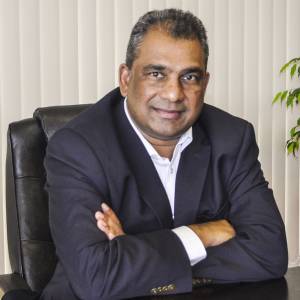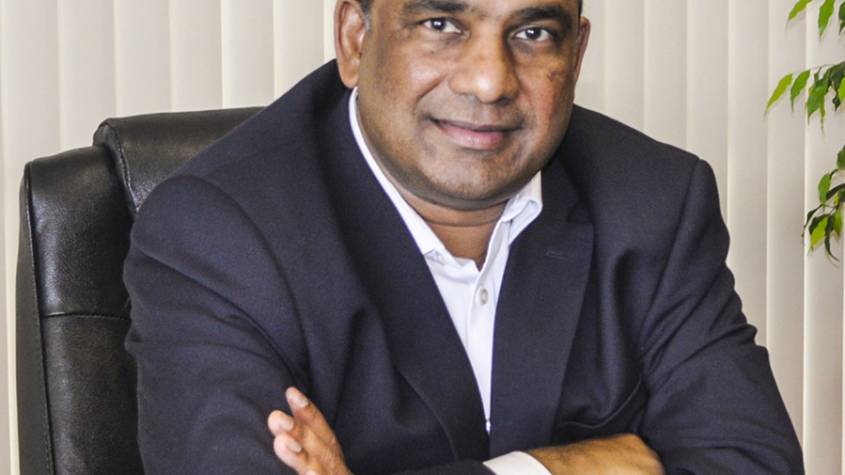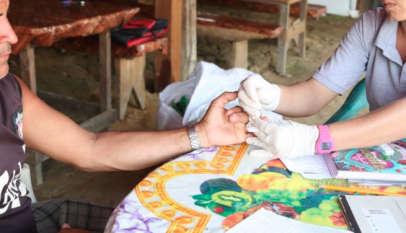INTERVIEW | Why AU must evolve clear guidelines on unconstitutional power shifts, popular uprisings – Vasu Gounden
Dr Vasu Gounden, executive director of the African Center for the Constructive Resolution of Disputes (ACCORD), Africa’s leading conflict management think-tank, proffers solutions to recent spate of unconstitutional changes of government around the continent.

By Adam Alqali
Newspage: ACCORD is an organizing partner in the ongoing retreat between the African Peer Review Mechanism (APRM) and Peace and Security Council (PSC) here in Durban. Why is this retreat necessary?
Gounden: First, we must acknowledge the historic nature of this meeting; it is the first bilateral meeting between the African Union Peace and Security Council (PSC) and the African Peer Review Mechanism (APRM). The PSC is charged with the matters of security and dealing with conflicts on the continent while APRM is tasked with promoting good governance. We know there is a direct correlation between the state of governance and conflicts on the continent.
So, the fact that these two institutions of the AU are meeting to harmonize their approaches to dealing with governance, peace and security challenges on the continent must be commended. ACCORD is one of the oldest civic organizations providing African solutions to conflicts on the continent for almost thirty years; we are honored to be invited to partner with APRM and the PSC in hosting this event.
Newspage: Like you said, APRM’s mandate is promoting good governance in Africa while the PSC is tasked with maintaining security. How close is the relationship between governance and security in the African context?
Gounden: The spate of unconstitutional changes in governments we are experiencing on the continent are directly related to the state of governance in Africa. This is because certain governments have consistently failed to meet the development needs of their people. Political leaders have continually taken advantage of the people by exploiting their vulnerability leading to frustrations which plunges countries into conflict. So, it is of strategic importance that governance is being dealt with alongside peace and security because poor governance is leading to a lot of conflicts within the continent.
Newspage: Some are of the opinion that the frameworks guiding AU’s intervention during unconstitutional changes of government are weak and ineffective hence it is handicapped when it comes to effectively resolving the rising spate of coups around Africa. What is your take on this?
Gounden: During the period of anti-colonial movements African governments were primarily interested in overthrowing colonial regimes and those governments propped up by the colonial powers. So, African leaders had a very clear sense of direction which gained a lot of support from the people. In the post-colonial period, we experienced one-party regimes and it was not until the 1990s that multi-party democracies began to spring up, since then we have been preoccupied with building democracy in our continent.
However, democracy as we know it in Africa has not delivered tangible results in terms of addressing poverty, unemployment and inequality. A significant percentage of our people are still poor and unemployed hence there is a high level of inequality on the continent. So, we have governments who are democratically elected but have failed to deliver the dividends of democracy. It is in this context that popular uprisings against these governments keep emerging and this is where the AU comes in.
The question now is are these takeovers of government through civil uprisings unconstitutional change of governments? Yes they are! But are they popular or not? If we take Sudan as an example, the overthrow of President Omar al-Bashir was unconstitutional but it was popular. Again, is the AU saying that people cannot overthrow governments that are oppressive through popular uprisings?
This was exactly what played out in Sudan, Mali and other African countries that experienced unconstitutional power shifts. Now the challenge before the AU is that it has to evolve new guidelines for intervention during unconstitutional changes of government across its member states. It has to clearly define where a popular uprising stops and unconstitutional change of government begins. This is certainly not a simple issue, it is a very complex one.
Newspage: What do you have to say about the case of Chad where President Idriss Dèby was killed and he was succeeded by his son who became a military head of state and the country was not suspended from the AU?
Gounden: Certainly this is because of the complex nature of these unconstitutional changes of government which means each case must be judged on its own merit. Yet, the AU has to be consistent in its endeavors. And that is why I believe we need new guidelines and rules that clearly state where a popular uprising stops and an unconstitutional change of government begins.
Newspage: Overall, how are the challenges of governance, peace and security impacting the continent’s development?
Gounden: We are in a very dangerous situation in Africa. We came through a post-colonial period only to find ourselves in the middle of a Cold War and now we are in the post-Cold War era which is supposed to be an era of democracy but we know that democracy has not delivered its dividends to the African people yet. As such, we are now experiencing a lot of unconstitutional changes in power and popular uprisings.
All this is happening in the midst of a new emerging Cold War between China and the United States, and once again, we have found ourselves in the middle of global power dynamics. We are right at the centre of this dynamic which presents us with a huge challenge as we forge ahead; I can predict that the next decade will be one of the most challenging for Africa. We have to muster all our resources to ensure we meet these challenges with African solutions.
Editor’s note: This interview has been edited for length, clarity and flow.













